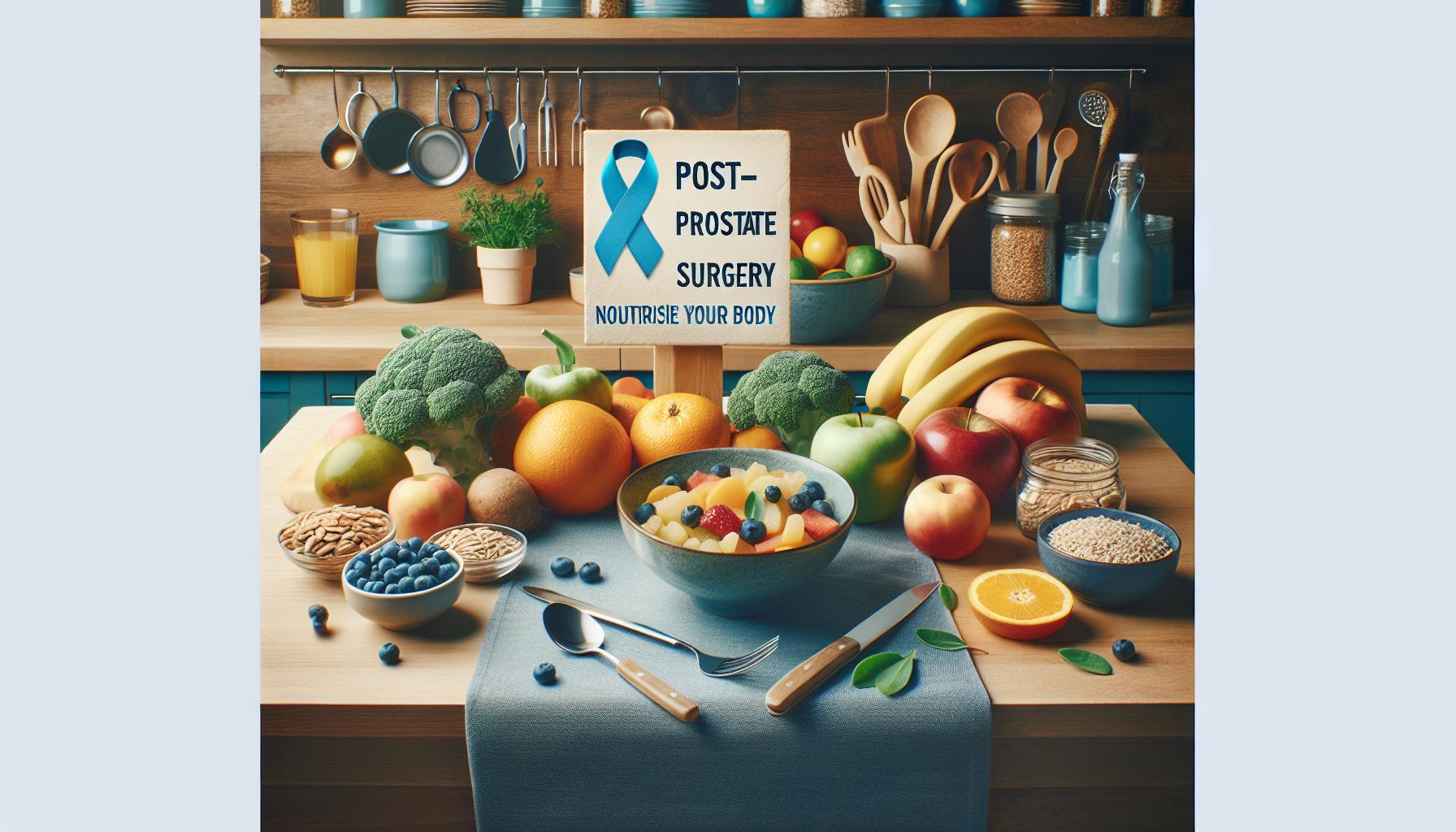Introduction
One of the vital tick boxes on your post-prostate surgery checklist is transitioning your diet for optimal recovery. Wondering what type of foods will go easy on your gut? In simple terms, easy-to-digest foods are what you need. These are foods that are filled with essential nutrients but won’t cause stress to your digestive system. In this article, we’re going to navigate through the culinary landscape to bring you the best nourishing, appetizing, and easy-to-digest foods your stomach will thank you for after prostate surgery.
Essential Elements: Easy-to-Digest Foods Explained
Easy-to-digest foods, often described as ‘kind to the stomach’, are usually those that are low in fiber, rich in protein, and easy for your digestive system to break down. They are the friendly fare that leads the parade in maintaining a positive nutritional balance, while shoutin’ a big “no thank you” to irritation and discomfort.
The Proofs in the Pudding… or rather the Protein
Getting the right amount of protein is crucial during your recovery. Protein is your body’s building block, tasked with ~fixing~ any wear and tear, just like your local mechanic. The significant factor here is opting for lean protein sources, like chicken, turkey, or fish, for they are gentler on your digestive system than their fatty alternatives.
Hunting and Gathering: Spotting Suitable Foods for Your Plate
When it comes to discerning what digestible delights are best post-prostate surgery, it’s essential to steer clear of the hard-hitters like fried, spicy, or high-fat foods. Instead, you’re aiming for a diet that’s soft, bland, and low in fiber. Think ’mashed not fried’, ‘steamed not spicy’, and ‘mild not wild’.
‘Peelin’ Good: The Fruits to Favor
In the realm of fruits, ripe bananas, melon, and canned fruits like peaches or pears, are a surefire hit for the recovering belly. They are gentle, easy-to-digest, and come packed with vitamins and minerals to give your recovery the head start it needs.
Don’t Forget Your Veggies
Now, although we’re advocates of low-fiber diets straight after surgery, this is not to say all vegetables should take a hike. Certain vegetables like cucumbers, baby carrots, and zucchini are low in fiber and do wonders for the gut.
Grain Gains: Opt for the Refined
When we generally talk nutrition, whole grains are usually the preferred guest at the table. However, after surgery, refined grains such as white bread, pasta, and rice tend to be better digested. It’s an odd switch, but remember, it’s just temporary.
Eat, Pray, Hydrate
Alongside choosing the right foods, staying hydrated is non-negotiable. Water is, of course, your number one go-to, but other clear liquids like broths and herbal teas can also be a soothing addition to your recovery regimen.
Slurp Your Soup, Satisfy Your Stomach
Hot or cold, soups are a sensational way to get the nutrients you need without bombarding your belly. Take care, though, to opt for non-creamy soups that are low in fat and easy on the stomach.
Conclusion
After going through prostate surgery, making the necessary dietary changes can significantly aid your recovery. Easy-to-digest foods, composed mainly of proteins, specific fruits and veggies, refined grains, and hydration components, constitute a kind and effective diet for your recovering body. Remember, every individual is different, and what works for one may not work for another. Always consult with your health professional before making any significant dietary changes. Here’s to a speedy recovery!
Frequently Asked Questions
1. Are dairy products easy to digest after prostate surgery?
Mild dairy products such as cottage cheese, Greek yogurt, and mozzarella are usually better digested by the stomach after prostate surgery.
2. Are all vegetables good to consume post-surgery?
Not all vegetables are comfortable for the gut after surgery. Vegetables that are highly fibrous, like broccoli and cabbage, could be hard to digest.
3. Can I drink coffee after prostate surgery?
Coffee is known to be a bit harsh on the stomach and could cause irritation. Opt for herbal teas as an alternative.
4. Should I eat small, frequent meals or stick to 3 meals a day?
Small, frequent meals are generally easier to digest and can help to maintain constant energy levels.
5. Are spicy foods allowed?
It’s best to avoid spicy foods as they may disturb the stomach after surgery. A bland, mild diet is more recommended.


